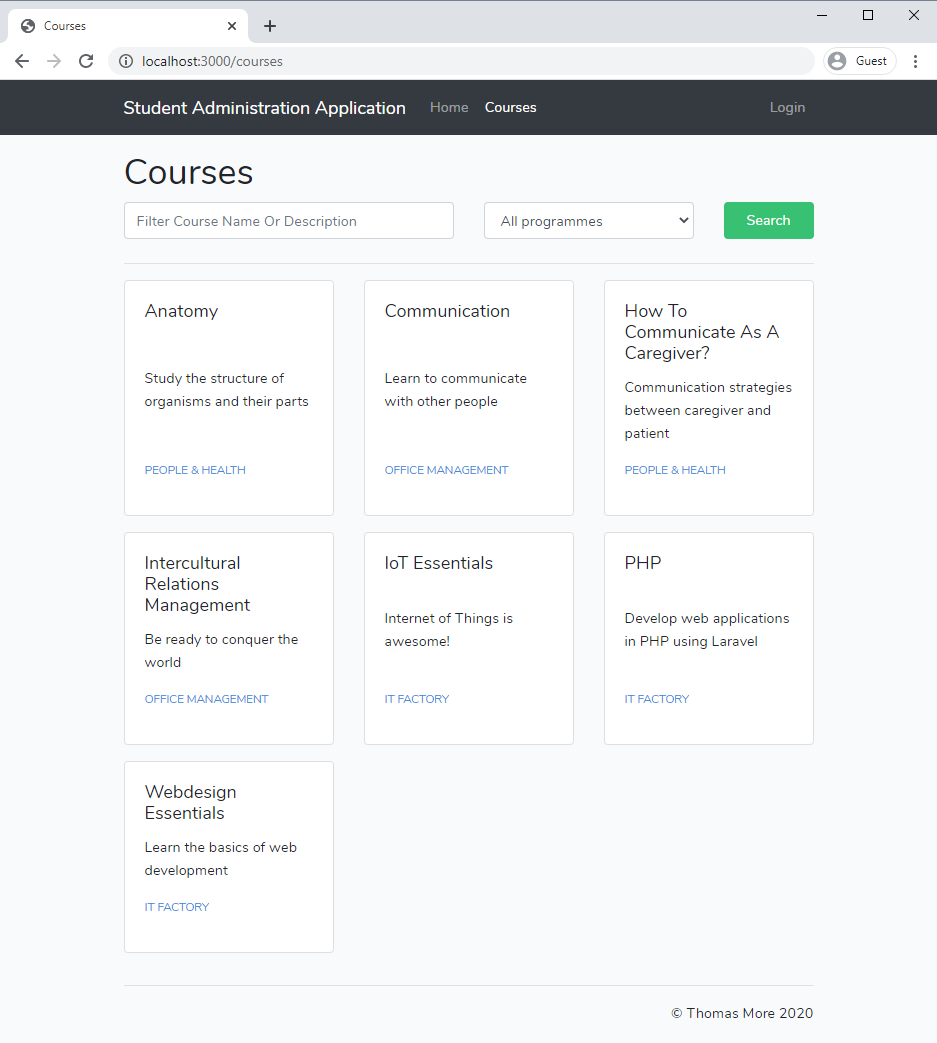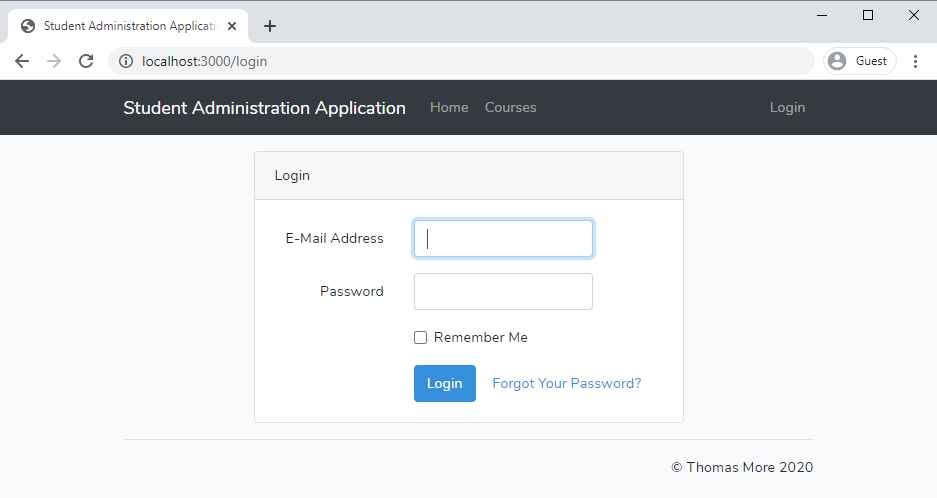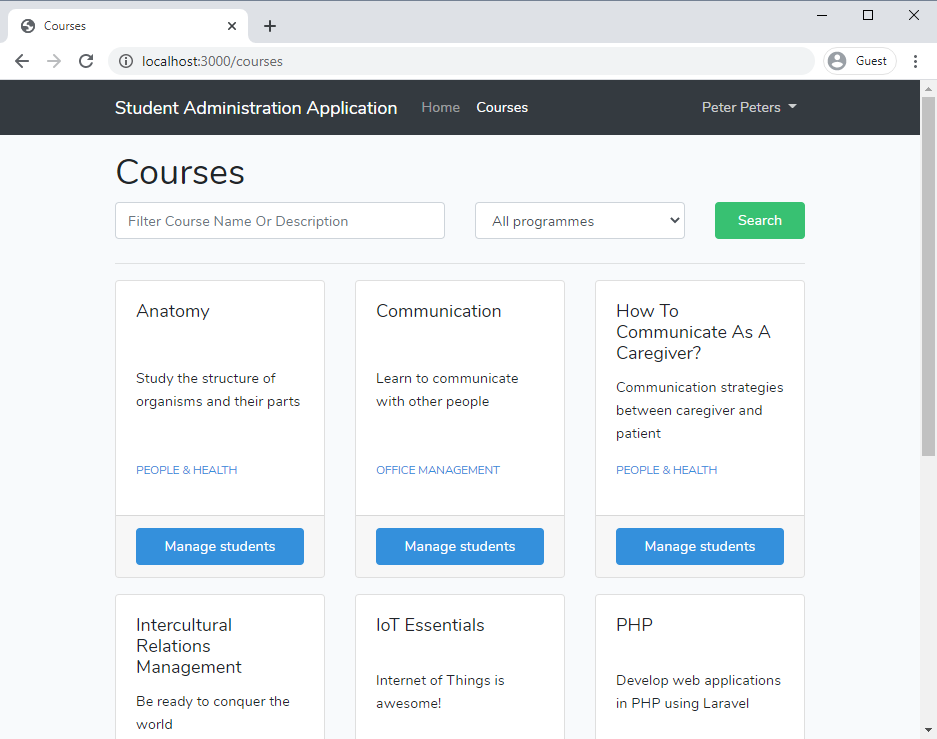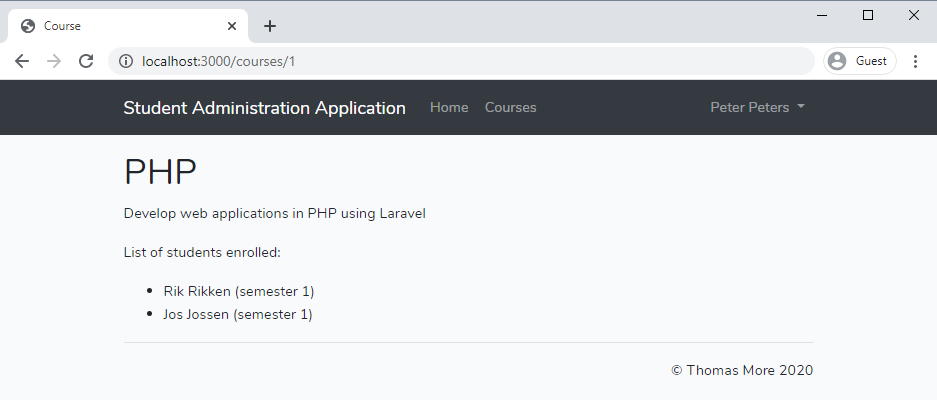Part 9 - Authentication
PREREQUISITES
- Finished Laravel exercise -> Part 8 - Course detail
- Finished Laravel -> Authentication
- Follow the instructions for implementing authentication
- Scaffold basic login and registration views and routes, and adjust where necessary
- Update the navigation menu that will be different for guests, authenticated users (without admin rights) or administrators
- Use the built-in
authmiddleware to protect specific routes for unauthorized users
REMARK
In this application, we do not want users to register themselves. Therefore, we don't include a Register link in the menu. By using Auth::routes(['register' => false]); in routes/web.php, no register routes are made, resulting in a 404 page when trying to access http://localhost:3000/register.
Non-authenticated users (guests)
- Guests (e.g. students interested in some courses) can only access the home page and the courses dashboard (but the buttons 'Manage students' are not visible in the course cards)

- Guests should not be able to access course detail pages (with the enrolled students on it)
- If they do try e.g. the url http://localhost:3000/courses/1, they are (automatically) redirected to the login page

Authenticated users without admin rights
- Authenticated users without admin rights (e.g. lecturers interested in a list of students enrolled for their course) can access the home page, the courses dashboard (with 'Manage students' buttons) and the course detail pages


REMARK
In order to be able to test this behaviour, you should add a user/lecturer (e.g. Peter Peters) without admin rights to your database
- In the navigation bar, the name of the authenticated user is shown
- By clicking on it, a dropdown is shown through which the user is able to logout from the application

Authenticated users with admin rights
- Authenticated users with admin rights (e.g. programme heads, secretaries or lecturers who manage the student programmes) obviously can access all the pages that are accessible by a user without admin rights as well
- On top of these functionalities, they will be able to perform some administrative tasks
- For one of these tasks, i.e. creating, updating and deleting programmes, a link Programmes is already foreseen in the navbar. The programming logic (routes, controller, views, ...) behind this additional functionality is tackled in Part 10 of this exercise.
